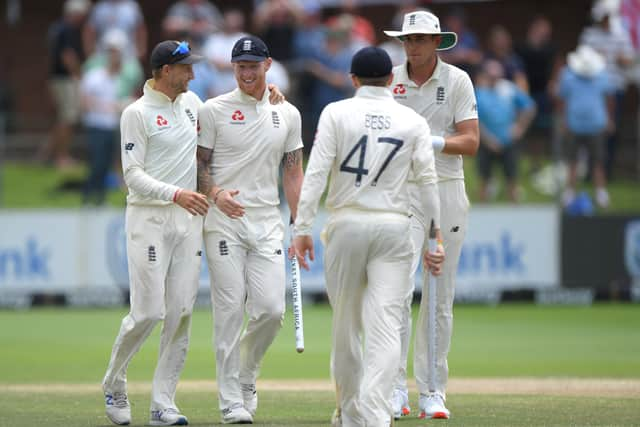Why four-day Test match proposal is not biggest threat to treasured format – Chris Waters


After all, do I think that Test cricket is the greatest form of the game? Yes.
Do I think that the County Championship is a brilliant competition that should be cherished and protected? Yes.
Advertisement
Hide AdAdvertisement
Hide AdDo I think that The Hundred is the worst idea since Abraham Lincoln announced in April 1865, “I think I’ll go out to the theatre tonight”? Yes.


I prefer my balls red as opposed to white, as the actress might have said to the bishop.
But for all my distaste for fast-food cricket, and the flood of franchise competitions springing up around the world like garden weeds, I don’t subscribe to the majority consensus against four-day Test matches, articulately adumbrated in this newspaper only recently by Yorkshire chairman Robin Smith.
Yorkshire are against four-day Tests as a matter of club policy; Smith recently pressed for an official board position on the matter, which is to be debated next month by the International Cricket Council with a view to four-day Tests as standard from 2023.
Advertisement
Hide AdAdvertisement
Hide AdMany Yorkshire members will agree with Smith and the club on this subject, just as many do not agree with them on their backing for The Hundred. It is, after all, a game of opinions.
My own, for what it is worth, is that four-day Tests are a side issue when it comes to the health of Test cricket in general.
In reality, if you could get the players to speed up a bit and perhaps bowl more than two or three overs an hour, you could make up a lot of any fifth-day time in any case, while many Test matches these days do not last the distance.
No, the biggest threat to Test cricket is from such concepts as The Hundred and the consequent effect on competitions like the Championship, the traditional Test match pathway, and a host of scheduling, financial, even societal issues.
Advertisement
Hide AdAdvertisement
Hide AdIn other words, it strikes me as being a loud and lofty argument against what is a relatively small and unimportant subject; much ado about nothing, as William Shakespeare might have said.
Aside from the cost implications and the fact that clubs would save money on staff hires, etc, four-day Tests would reduce the workload on players and still provide more than enough time for compelling entertainment with properly enforced over-rates carrying substantial run penalities.
Of course, I understand and fear that administrators might use the days saved by cramming in yet more white-ball games, but the concept of four-day Tests should not be dismissed purely on that basis.
Historically, Tests have been played over vastly different timeframes, from three-day affairs to the opposite extreme of timeless games, many of which were stultifyingly dull, by the way.
Advertisement
Hide AdAdvertisement
Hide AdIn fact, I would go further and make Championship matches three-day games as they used to be, with over-rates that actually acknowledge that people are giving up their hard-earned money/time to go along and watch.
It is not the length of games that is the problem but the pace of play, the surfeit of international fixtures especially and the different formats as administrators bleed the white-ball goose dry.
The England and Wales Cricket Board, indeed, is now laughably positioning itself as a champion/protector of five-day Tests, having initially given a cautious welcome to the four-day proposal just a few weeks ago.
This irony will have escaped no one given the governing body’s fascination for The Hundred, its marginalisation of the Championship and its now apparent disregard for 50-over county cricket – a classic case of saying one thing and doing another.
Advertisement
Hide AdAdvertisement
Hide AdSome will protest: “Ah yes, but what about Cape Town?” After all, England won a thrilling match at Newlands only last month late on day five.
Granted, it was a thriller, but what about the ponderous over-rates in Tests the world over and, in spite of them, all the unused fifth days?
On the one hand, today’s administrators seem to want to reduce cricket to its shortest possible state and, on the other, to keep Test matches spread out over a full working week in the fast-paced world of the 21st century – a peculiar paradox.
Look back through Test history and for every thrilling five-day Test I can you show you many, many more that were anything but.
Advertisement
Hide AdAdvertisement
Hide AdThe idea that four-day Tests would be the equivalent of cricket selling its soul, that it would somehow cheapen it or destroy its heritage is absurd. It would actually encourage more proactive cricket/captaincy and, ergo, yet more entertainment.
Equally absurd is the hackneyed claim that we mustn’t forget about the weather, for if cricketing policy was predicated on the prospect of rain, there wouldn’t be much point in playing cricket at all.
Ultimately, four-day Tests are a minor issue compared to the many major ones facing the sport today – not least a prevailing lack of quality governance.